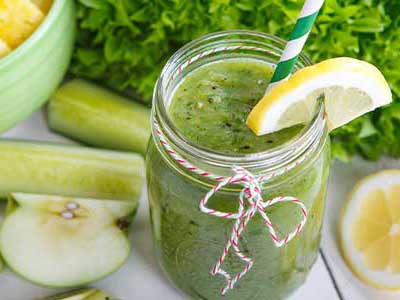10 Health Benefits of Ginger
From its roots in Southeast Asia to its role in your favorite dishes, ginger isn’t just a spice—it’s a medicinal marvel. Ginger, derived from its roots, has a long history as both a delicious ingredient and an alternative medicine.
If you’re ready to explore how this humble root can boost your health, here are ten key benefits of ginger and tips to include it in your diet.
1. Better Digestion

If you’re struggling with indigestion, ginger can offer relief by speeding up the digestive process and promoting the movement of food through your stomach. This makes it helpful for conditions like ulcers, IBS, and constipation.
- Studies show ginger can double the speed of digestion.
- It promotes healthy enzymes that break down food and reduce bloating.
A small addition of ginger to your meals can go a long way in improving your digestive health.
Digestion-Friendly Meals with Ginger
Adding ginger to your diet doesn’t have to be difficult. Whether you sip on a cup of homemade ginger tea to help with digestion after a meal or make a simple salad with ginger dressing, there are many ways to add a gut-friendly boost to your dishes with ginger. Here are a few of our favorite digestion-friendly meals made with ginger:

Super Green Ginger Smoothie
Quick and simple to make, this Super Green Ginger Smoothie will brighten your morning with a boost of fruits and vegetables that can help with digestion.
- Why it works: Ginger contains compounds like gingerol, which stimulate digestive enzymes and promote smoother digestion, reducing bloating and discomfort.
- Pro tip: Adding a handful of mint leaves enhances digestion and soothes the stomach, making this smoothie even more gut-friendly.


Easy Ginger Tea with Lemon
This tea is not only delicious, but gut-friendly! It’s the perfect Easy Ginger Tea with Lemon recipe for when you need a fast remedy for any digestive problems.
- Why it works: Ginger helps stimulate saliva and bile production, aiding in food breakdown and promoting gut motility. Lemon adds vitamin C and helps balance stomach acidity.
- Pro tip: Adding honey not only sweetens the tea but also has antibacterial properties that can help soothe an upset stomach.

2. Boosts Immunity

Gingerol, the bioactive compound in ginger, is packed with antimicrobial and antifungal properties that strengthen your immune system. It also contains antioxidants and anti-inflammatory agents, making it a powerful ally against colds and flu.
- Ginger helps reduce fevers, coughs, and headaches.
- Its properties can ease common cold and flu symptoms, keeping you feeling your best.
Incorporating ginger into your diet helps fortify your body’s defenses.
3. Alleviates PMS Symptoms

For women experiencing premenstrual syndrome (PMS), ginger can help reduce symptoms like menstrual pain and bloating. Its natural soothing properties also contribute to emotional balance during hormonal fluctuations.
- Ginger may reduce mood swings and irritability associated with PMS.
- It is a natural alternative to managing discomfort during the menstrual cycle.
Always consult with a healthcare professional before making major dietary changes.
4. Relieves Nausea and Upset Stomach

One of the most well-known benefits of ginger is its ability to relieve nausea. Whether it’s caused by motion sickness, migraines, or pregnancy, ginger offers natural relief.
- Its anti-inflammatory properties calm the stomach.
- Ginger regulates hormones and blocks signals that trigger nausea and vomiting.
Try fresh ginger root or tea to enjoy its anti-nausea effects.
5. May Help With Cancer

Ginger may complement traditional cancer treatments by inhibiting the growth of some cancer cells and reducing inflammation. Its antioxidant properties also help protect the body from oxidative stress.
- Studies suggest ginger may aid in preventing ovarian, colon, and pancreatic cancers.
- It helps manage chemotherapy side effects like nausea and dizziness.
While not a cure, ginger can be a supportive addition to a well-rounded cancer treatment plan.
6. Reduces Pain

As a natural pain reliever, ginger helps with conditions like arthritis, muscle soreness, and menstrual discomfort. Its anti-inflammatory properties work to eliminate compounds in the body that cause pain.
- Ginger is a natural alternative to over-the-counter medications.
- It can reduce arthritis symptoms and improve joint mobility.
Its dual action on pain signals and inflammation makes ginger a versatile remedy.
7. Healthier Skin

Ginger offers several beauty benefits, enhancing the health and appearance of your skin. Its antioxidants, vitamins, and minerals improve hydration and circulation.
- Ginger protects the skin from UV damage and slows collagen breakdown.
- Its antiseptic properties can improve acne symptoms and help with scarring.
By promoting natural radiance, ginger supports a healthy, youthful complexion.
8. Weight Loss Aid

Some studies suggest ginger can support weight loss efforts by boosting metabolism and increasing calorie burning. Its thermogenic properties and ability to control insulin levels make it an effective supplement.
- Ginger can create a feeling of fullness, helping to prevent overeating.
- It may aid in workout recovery and improve energy levels.
For best results, combine ginger with other healthy lifestyle practices.
How Ginger Interacts with Insulin and Metabolism
You may not realize it, but ginger is a powerful ally in weight management due to its thermogenic (heat-producing) properties, which help boost metabolism and promote calorie burning. It also improves fat breakdown by enhancing insulin sensitivity and reducing insulin resistance, which stabilizes blood sugar levels. Here’s how:z
Insulin Sensitivity: Ginger helps improve insulin sensitivity, making your body more efficient at processing glucose. This, in turn, prevents fat storage and stabilizes blood sugar levels, which can help reduce cravings and hunger spikes.
Thermogenic Effect: When consumed, ginger slightly raises body temperature and boosts your metabolism, helping you burn more calories naturally—even while at rest.
9. Prevents Cardiovascular Disease

Ginger supports heart health by acting as a natural blood thinner and reducing cholesterol. These properties can help lower the risk of heart attacks and strokes.
- It improves lipid metabolism, breaking down fats in the bloodstream.
- Ginger enhances circulation and lowers blood sugar levels.
By reducing inflammation and improving heart function, ginger contributes to overall cardiovascular well-being.
10. Improves Brain Function

Regular consumption of ginger may protect the brain from age-related decline by reducing inflammation and oxidative stress. This can help prevent conditions like Alzheimer’s and improve mental health.
- Ginger enhances memory, focus, and reaction time.
- It stimulates serotonin and dopamine production, alleviating anxiety and depression.
Adding ginger to your diet supports cognitive function and emotional balance.
How Ginger Supports Mental Health Across Age Groups:
In Children and Adolescents: Ginger is believed to enhance focus and concentration in children. Its anti-inflammatory properties may help reduce headaches caused by stress or studying. Ginger tea, for instance, can be a great natural remedy for children experiencing school-related or test anxiety.
In Adults: For working professionals, ginger is a great way to boost memory, reaction time, and productivity. It stimulates blood flow to the brain, improving oxygen delivery and cognitive clarity. Ginger’s ability to reduce anxiety and promote serotonin production makes it a tasty way to manage stress in high-pressure environments.
In Seniors: Ginger’s antioxidant compounds may help reduce oxidative stress and inflammation in the brain, which are linked to age-related cognitive decline and conditions like Alzheimer’s and dementia. Regular consumption of ginger is thought to improve recall and protect against neurodegeneration.
Improve Your Health with Ginger
As you can see, adding ginger to your diet is a simple and delicious way to improve your health. From boosting digestion to supporting heart and brain health, this versatile root has something to offer everyone.
Whether you’re addressing specific health concerns or just looking for ways to stay healthy, ginger is a great addition to your meals and drinks. Explore creative ways to incorporate ginger and experience its numerous benefits firsthand.
Not to mention, ginger pairs perfectly with other superfoods like garlic and onions to further enhance your overall well-being. Visit our website to learn more about incorporating ginger into your diet with simple recipes and products designed to make healthy living easier.
FAQs
How to Use Ginger for Digestion?
Ginger’s natural enzymes help relieve indigestion, nausea, and bloating, promoting overall digestive health. There are many ways to make use of ginger’s digestive properties, like adding fresh ginger to meals, brewing tea with ginger, or ingesting ginger-infused lozenges or candies, to name a few.
How Much Ginger Should I Eat Daily?
It is generally recommended to consume up to 3–4 grams of ginger per day to get the most benefit from its health benefits, such as reducing nausea and inflammation. However, individual tolerance and personal health goals and cases, like pregnancy or other health-related concerns, should be considered.
Can Ginger Help Nausea?
Yes, consuming ginger can be a great way to alleviate nausea. Ginger has natural enzymes with anti-nausea properties that can aid in calming an upset stomach and reducing motion sickness or morning sickness symptoms. You can make use of ginger’s nausea-relieving effects by simply incorporating it into your meals.
What Are the Risks of Consuming Too Much Ginger?
While ginger is generally safe, excessive consumption (over 5 grams per day) may lead to side effects like heartburn, diarrhea, or stomach discomfort. People who are pregnant, on blood-thinning medications, or with gallstones should consult a doctor before increasing their ginger intake.
Is Ginger Effective for Children’s Health?
Yes, ginger can benefit children by soothing upset stomachs, relieving motion sickness, and boosting immunity. Some children may prefer the sweeter, less zingy forms of ginger, such as ginger snaps or ginger ale. However, always use it in moderation and consult a pediatrician for appropriate dosages.
What Are the Differences Between Fresh and Dried Ginger in Terms of Benefits?
Both fresh and dried ginger offer health benefits, but they differ slightly. Fresh ginger is more effective for digestion and nausea relief, while dried ginger, with its concentrated properties, is better for anti-inflammatory and antioxidant benefits.
Dishes that typically use dried ginger are baked goods like cookies and breads and some brews of tea, where fresh ginger is generally found in home-cooked meals such as stews and stir fries. Choose based on your needs and recipes!

